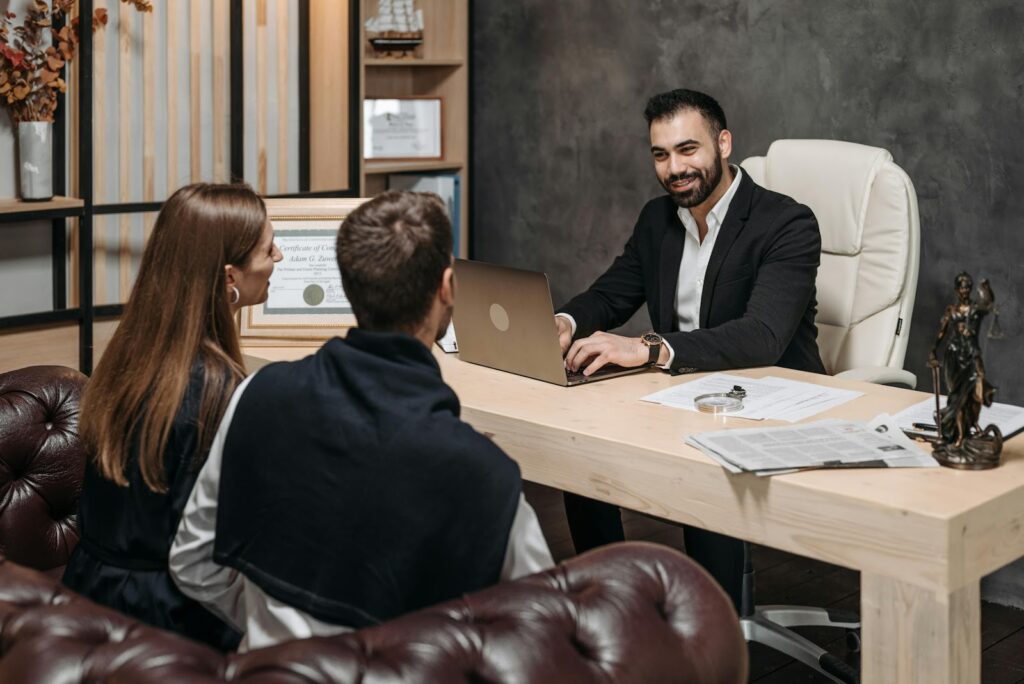Denmark’s welfare and human rights-based strategy has been valued for decades.
For making opportunities and services equally accessible to people with disabilities, including those who are deaf, significant efforts have been undertaken by the nation.
The Danish Act on the Rights of People with Disabilities is central legislation in achieving this goal.
For the deaf, the legislation has been central in advancing inclusion, accessibility, and equal rights in much of life.
The Danish Act on the Rights of People with Disabilities and Its Contribution to Deaf Rights
The legal platform for the protection of people with disabilities, deaf and hard of hearing people included, from discrimination is established through the Danish Act on the Rights of People with Disabilities.
The Danish Act demands the workplaces, schools, and state institutions to adopt required measures in order to provide full inclusion in society.
It encompasses accessibility of captioned services, sign language interpretation, and assistive technology to promote communication.
The Act is dedicated to accessibility with a firm focus on preventing deaf people from being excluded from accessing basic services and public life because of communications barriers.
The Act is consistent with the international conventions on human rights in Denmark, including the United Nations’ Convention on the Rights of Persons with Disabilities (CRPD) .

Challenges in Education and Employment for Deaf People
Despite the cover of the Danish Act, nonetheless, the deaf continue to suffer in the workplace and schools.
Due to the absence of sign language interpreters as well as learning materials specifically tailored for them, deaf students continue to be handicapped from receiving quality education.
Despite being officially granted recognition, nonetheless, it remains difficult to achieve the inclusion of Danish Sign Language (DSL) in schools in entirety.
Deaf employees at work struggle with employer communication and comprehension within the workplace.
Though accommodations are required by the law, some employers refuse to make the required adjustments based on cost or simply lack an awareness of their duty in the legal aspect.
It results in deaf professionals facing underemployment and narrow career options.
Increased legal consciousness and enforcement are required in a bid to address these problems and make workplaces and schools completely comply with accessibility standards.
Public Services and Everyday Life

The Danish government has made sure that deaf people receive public services without any kind of discrimination.
For example, to enable effective communication between doctors and deaf patients, health services must offer sign language interpreters.
Availability of services continues to be low, however, particularly in rural settings where interpreters may not be readily available.
In order to make it accessible, legal services, social welfare programs, and emergency response systems need to be made available as well.
Both advocacy groups and legislators continue to give top priority to the fact that such services always provide the accommodations necessary.
Technological Advances and Their Role in Accessibility
The deaf in Denmark nowadays enjoy more accessibility largely because of technological advances.
Accessibility has become much better in most sectors because of the widespread utilization of video relay services, real-time captioning, and mobile applications exclusively for deaf communication.
Digital solutions are being widely utilized by public authorities and private institutions for facilitating deaf people to communicate and get served so that they can be a part of society.
All these advances notwithstanding, there is still a necessity to ensure that technology is readily available and being used optimally.
Technology adoption with focus on accessibility can be encouraged across a broad variety of industries by government and funding programs.
The Advocacy and Community Role
Advocacy is still necessary in an attempt to bring effective change despite the Danish Act on the Rights of People with Disabilities providing legislative safeguard for the protection of deaf rights.
Organisations such as the Danish Association of the Deaf work hard in raising awareness, campaigning for changes in legislation and providing support for the deaf.
These institutions also contribute greatly to the elimination of stereotypes surrounding deafness and educating society.
Participation by communities and engagement with government institutions also aid in further efforts towards full integration and full opportunities for the deaf.
Future Direction towards Danish Deaf Rights
Denmark has made a great leap in the protection of the rights of the deaf, but an added impetus must be initiated in inculcating such advancements.
Several areas need to be improved, such as the enhanced enforcement of accessibility law, improving employers’ knowledge of their legal obligations, and providing more interpreter services.
Also, financial support for education programs that comprehensively use Danish Sign Language can close the gaps that currently exist in deaf education.
Further quality-of-life improvements for deaf people in Denmark will be achieved through more government support of accessibility programs and technological innovation.
In order to develop, policymakers, advocacy organizations, business enterprises, and society as a whole must collaborate.
Denmark can continue to be a world leader in disability rights by promoting an inclusive society and actively embracing the interests of the deaf community.
Conclusion
The rights of the deaf have been protected to a large degree through the Danish Act on the Rights of People with Disabilities.
Accessibility and equal opportunity have come a long way on the strength of advocacy, innovation in technology, and legal protections.
There remain challenges, primarily in public access to services, work, and education.
Inclusivity can be made yet more potent for Denmark and give its deaf citizenry more strength by reinforcing extant legislation, increasing public knowledge, and bringing innovative solutions into play.
Deaf individuals will be able to participate in every aspect of society without being discriminated against or facing a communication gap if the efforts are sustained.
For those who are looking for additional support, Unspoken Language Services offers interpreting services to help bridge the communication gap between the deaf and hearing communities.
Thumbnail Photo by Pavel Danilyuk

